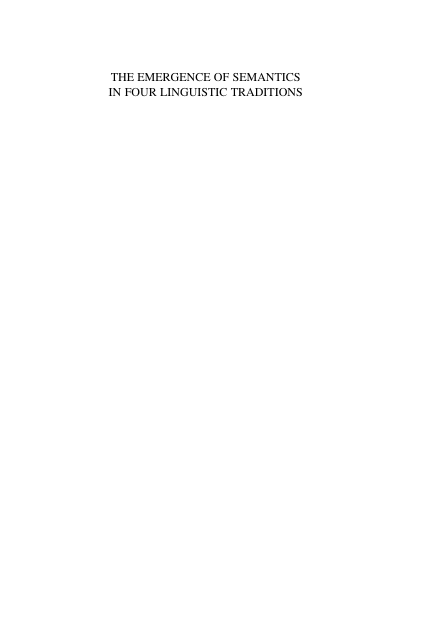The aim of this study is a comparative analysis of the role of semantics in the linguistic theory of four grammatical traditions, Sanskrit, Hebrew, Greek, Arabic. If one compares the organization of linguistic theory in various grammatical traditions, it soon turns out that there are marked differences in the way they define the place of ‘semantics’ within the theory. In some traditions, semantics is formally excluded from linguistic theory, and linguists do not express any opinion as to the relationship between syntactic and semantic analysis. In other traditions, the whole basis of linguistic theory is semantically orientated, and syntactic features are always analysed as correlates of a semantic structure. However, even in those traditions, in which semantics falls explicitly or implicitly outside the scope of linguistics, there may be factors forcing linguists to occupy themselves with the semantic dimension of language. One important factor seems to be the presence of a corpus of revealed/sacred texts: the necessity to formulate hermeneutic rules for the interpretation of this corpus brings semantics in through the back door.
 کتاب سل Ketab Sell | کتاب سل، بزرگترین منبع کتاب و جزوههای دانشجویی
کتاب سل Ketab Sell | کتاب سل، بزرگترین منبع کتاب و جزوههای دانشجویی









Reviews
There are no reviews yet.